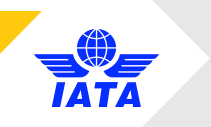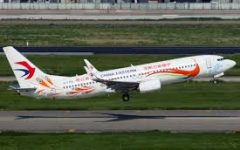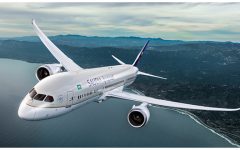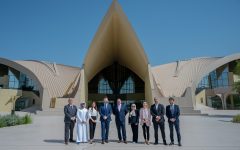 The International Air Transport Association (IATA) supports the wearing of face coverings for passengers and masks for crew while on board aircraft as a critical part of a layered approach to biosecurity to be implemented temporarily when people return to travelling by air. IATA does not support mandating social distancing measures that would leave ‘middle seats’ empty. Evidence suggests that the risk of transmission on board aircraft is low. Mask-wearing by passengers and crew will reduce the already low risk, while avoiding the dramatic cost increases to air travel that onboard social distancing measures would bring.
The International Air Transport Association (IATA) supports the wearing of face coverings for passengers and masks for crew while on board aircraft as a critical part of a layered approach to biosecurity to be implemented temporarily when people return to travelling by air. IATA does not support mandating social distancing measures that would leave ‘middle seats’ empty. Evidence suggests that the risk of transmission on board aircraft is low. Mask-wearing by passengers and crew will reduce the already low risk, while avoiding the dramatic cost increases to air travel that onboard social distancing measures would bring.
“The aviation industry is working with governments to re-start flying when this can be done safely. Evidence suggests that the risk of transmission on board aircraft is low. And we will take measures—such as the wearing of face coverings by passengers and masks by crew—to add extra layers of protection,” said Alexandre de Juniac, Director General and CEO,IATA.
“The cabin environment naturally makes transmission of viruses difficult for a variety of reasons. That helps explain why we have seen little occurrence of onboard transmission. In the immediate term, our aim is to make the cabin environment even safer with effective measures so that passengers and crew can return to travel with confidence. Screening, face coverings and masks are among the many layers of measures that we are recommending. Leaving the middle seat empty, however, is not,” said de Juniac.
“Airlines are fighting for their survival. Eliminating the middle seat will raise costs. If that can be offset with higher fares, the era of affordable travel will come to an end. On the other hand, if airlines can’t recoup the costs in higher fares, airlines will go bust. Neither is a good option when the world will need strong connectivity to help kick-start the recovery from COVID-19’s economic devastation,” said de Juniac.
 Tourism Breaking News
Tourism Breaking News


